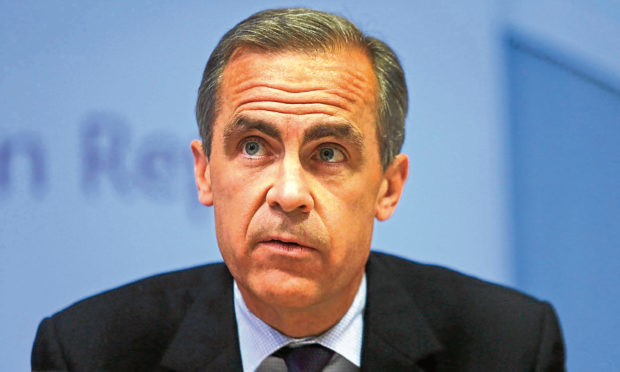The Governor of the Bank of England has raised concerns about a lack of regulation for cryptocurrencies such as Bitcoin, but said the bank had an open mind about eventually launching its own digital finance platform.
In a video-linked speech from London to the inaugural Scottish Economics Conference , Mark Carney repeatedly referenced Fife economist Adam Smith.
He said the technology behind cryptocurrencies was interesting but its emergence into the financial mainstream raised a number of issues.
He also said the development of a Central Bank Digital Currency (CBDC) was being actively pursued although it would not necessarily be brought to market, adding: “ A CBDC shouldn’t be a solution in search of a problem or an effort of central bankers to be down with the kids.”
The conference was supported by six Scottish higher education institutions including the universities of St Andrews and Dundee.
In his speech, Mr Carney said the current generation of cryptocurrencies are failing to fulfil the role of a replacement for money, with the market being subject to extreme volatility due to the fact the currencies neither have intrinsic value nor external financial backing.
He said the prospects of cryptocurrencies replacing fiat money – the term used for currency that a government has declared to be legal tender but which is not backed by a physical commodity – was “tenuous at best.”
He said issues such as market integrity, money laundering, terrorism financing, tax evasion and the circumvention of capital controls and international sanctions had to be addressed if cryptocurrencies were to be formally recognised in future.
However, he cautioned against the stifling of technological innovation that could improve financial systems and stability in future.
“Authorities need to decide whether to isolate, regulate or integrate crypto-assets and their associated activities,” Mr Carney said.
“A few jurisdictions have banned crypto-assets outright.
“And some regulators have sealed off crypto-assets from the core of the financial system in order to curtail risk of contagion.
“Most prominently, China – which had been one of the most active crypto-asset markets – recently banned exchanges, financial institutions and payment processors from handling them.
“If widely adopted, however, isolation risks foregoing potentially major opportunities from the development of the underlying payments technologies.
“A better path would be to regulate elements of the crypto-asset ecosystem to combat illicit activities, promote market integrity, and protect the safety and soundness of the financial system.
“The time has come to hold the crypto-asset ecosystem to the same standards as the rest of the financial system.
“Being part of the financial system brings enormous privileges, but with them great responsibilities.”
Bitcoin surged to prominence after a single coin’s value soared to almost $20,000 in January.
Its value has fluctuated wildly since and a single Bitcoin is currently trading at around $10, 875.










